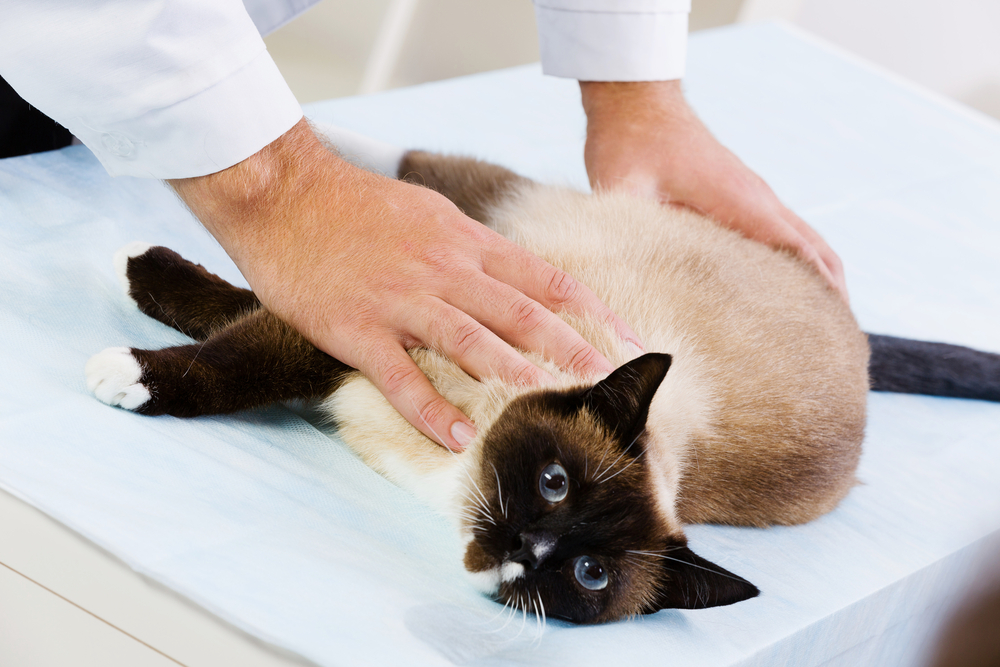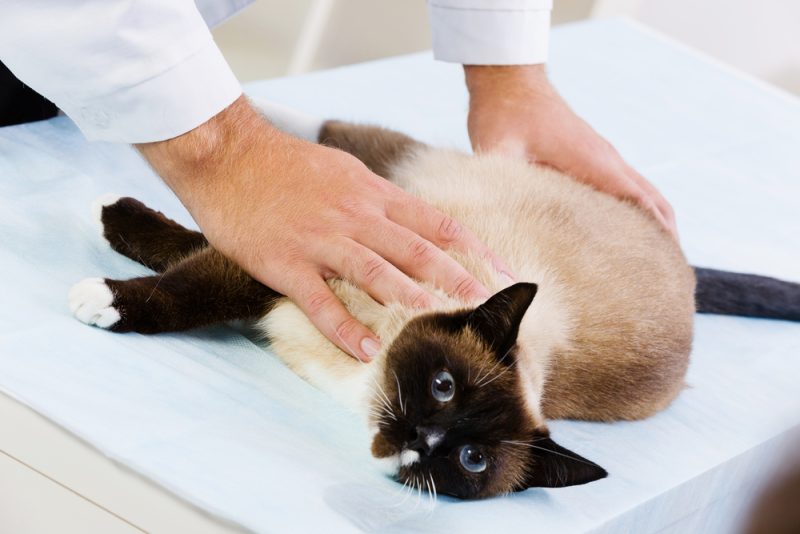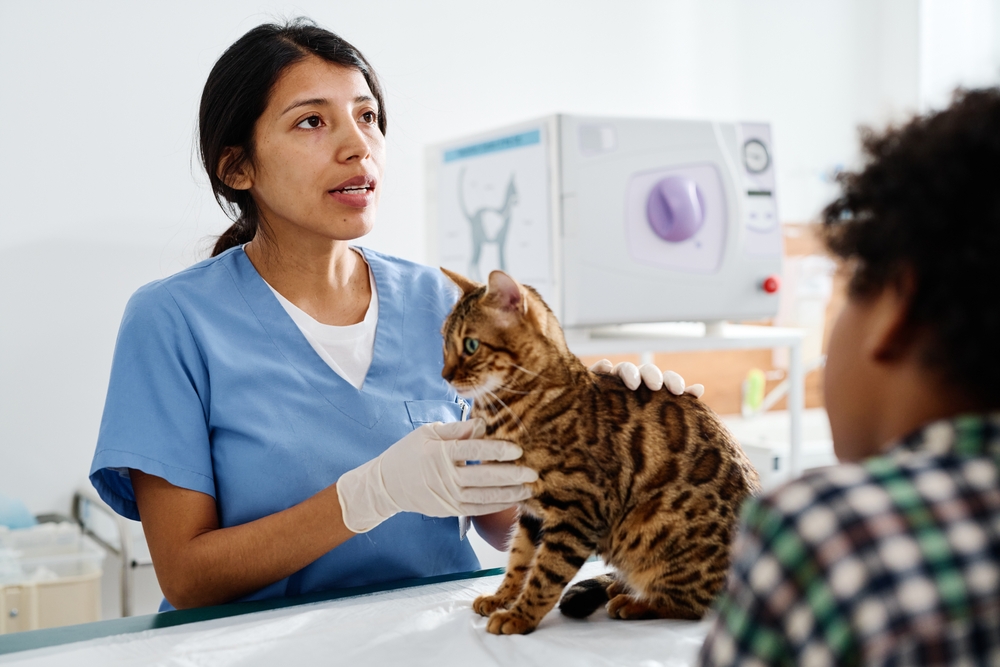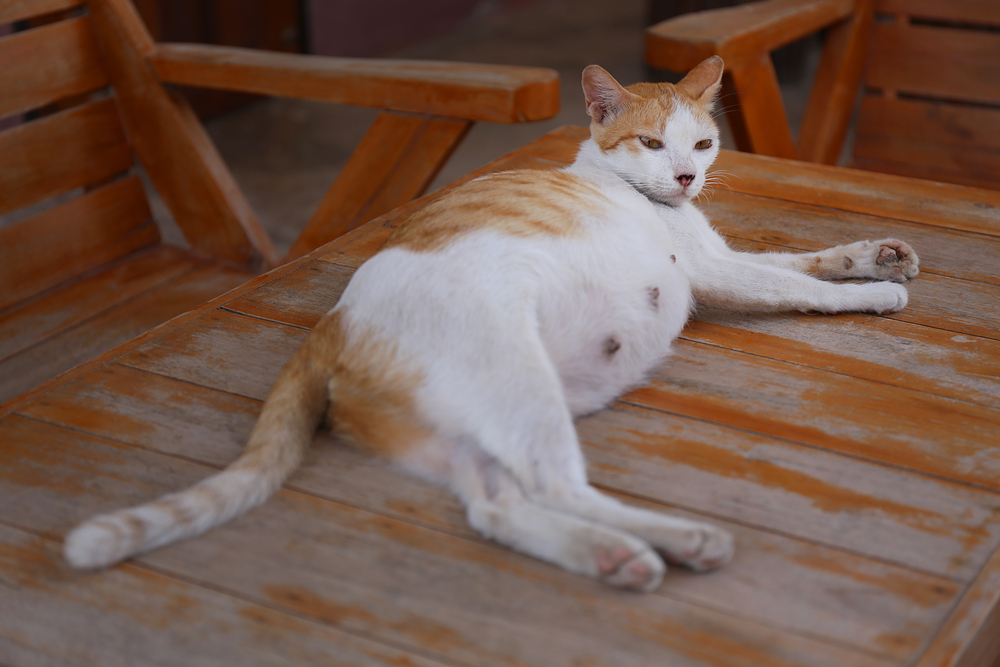Click to Skip Ahead
You may be aware of the importance of heartworm prevention for dogs, but did you know that cats also need to be protected from this potentially deadly parasite? Heartworms affect cats differently than dogs but can still cause severe disease.
There are currently no approved medications for treating heartworms in cats, and the best way to protect your feline friend is to prevent them from becoming infected. Experts agree that all cats should receive preventive medication year-round, even if they live exclusively indoors.
What Are Heartworms?
The term “heartworm” refers to an infestation with nematodes called Dirofilaria immitis. As their name suggests, these parasitic worms typically target the heart, but other body parts can also be affected. In cats, for example, the lungs tend to be impacted the most by heartworm infections.
Adult heartworms can grow up to a foot long! Unlike dogs, who can be loaded with hundreds of adult worms, cats typically have only a few (one to three). In some cases, they may not have any adult worms (just the immature life stages).
Given the size of an adult heartworm compared to a cat, however, even a single worm can pose a considerable threat.

How Do Cats Get Heartworms?
Cats get heartworms from the bite of an infected mosquito. Wild and domestic canines (i.e., foxes, coyotes, wolves, and dogs) are natural hosts for the parasite.
Here’s a quick overview of the heartworm lifecycle:
- After mating, adult female worms in a dog’s body produce vast numbers of microscopic babies called microfilaria, which hang out in the bloodstream.
- A mosquito bites an infected dog and ingests some of the microfilaria.
- Over the next 10-14 days, microfilaria in the mosquito’s body grow into larvae.
- When the mosquito bites a cat (or another animal), larvae enter the bite wound and start migrating throughout the body.
Since cats are not natural hosts for heartworms, most larvae do not reach the adult stage. These immature worms can still create big problems, however. As they move through the body (particularly the lungs), they cause a severe inflammatory reaction that can lead to heartworm-associated respiratory disease (HARD).
What Are the Signs of Heartworms in Cats?
Signs of heartworms in cats are highly variable. Any of the following scenarios are possible:
- No signs of infection at all
- Respiratory signs: Coughing, difficulty breathing
- Non-specific signs of illness: Decreased energy, reduced appetite, vomiting, diarrhea, and weight loss
- Neurologic signs: Loss of balance, seizures
Sadly, in some cats, the first sign of heartworm infection may be sudden death.
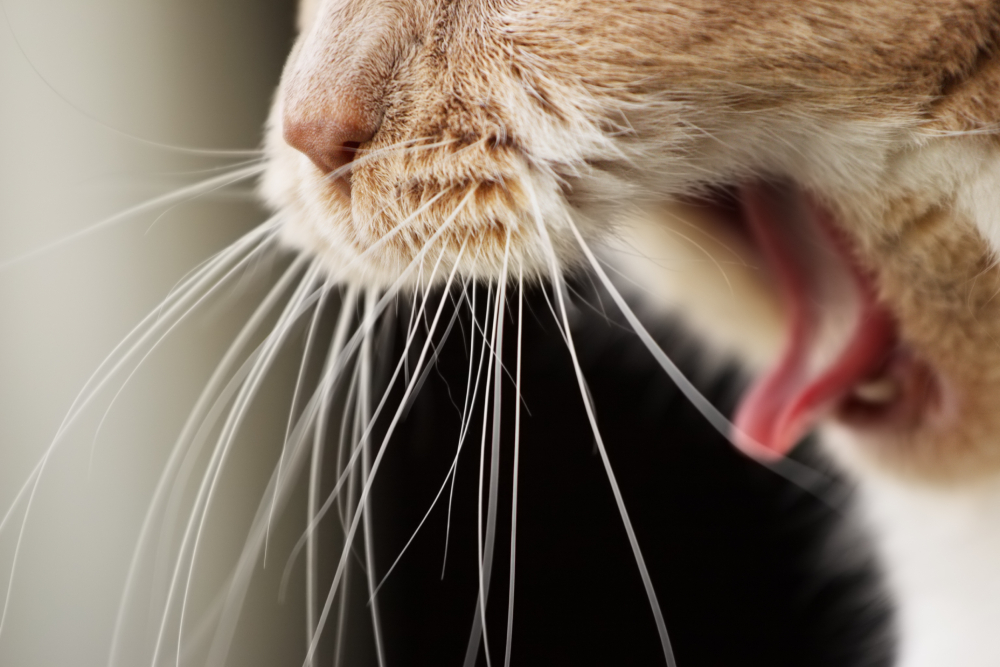
Are Heartworms Contagious?
No, heartworms are not contagious. An infected cat cannot spread heartworms to other cats, pets, or people.
How Can I Protect My Cat Against Heartworm?
There is currently no approved treatment for heartworms in cats, and preventive medication is the best way to protect your kitty. Fortunately, there are several safe and effective options available from your veterinarian.
Heartworm preventives for cats typically come in one of two forms:
- A flavored tablet to be given by mouth
- A small volume of liquid to be applied to your cat’s skin
Most are given monthly, but some of the newer products only need to be given every 8 weeks. Many heartworm preventives are safe for kittens as young as 6 to 8 weeks of age.
If your adult cat has never been on heartworm prevention, your veterinarian may recommend running diagnostic tests before starting to make sure they are not already infected.
Many heartworm products also have the added benefit of protecting your kitty from other parasites, such as roundworms, tapeworms, fleas, and ticks. Your vet can help you decide which product is right for your cat.
Here are some other tips to help keep your feline friend safe:
- Only use heartworm preventives that have been prescribed by a vet for your cat.
- Start as early as your veterinarian recommends, especially if you live in a high-risk area (some preventives can be used in kittens as young as 4 weeks of age).
- Confirm that the dose is based on your cat’s current weight, which is especially important for growing kittens.
- Follow the directions on the package label to make sure you use the product correctly.
- Give each dose on time, according to the recommended schedule; consider setting a reminder in your phone.
Never give your cat a parasite-prevention product intended for use in dogs! Many ingredients that are safe for dogs can be highly toxic to cats.
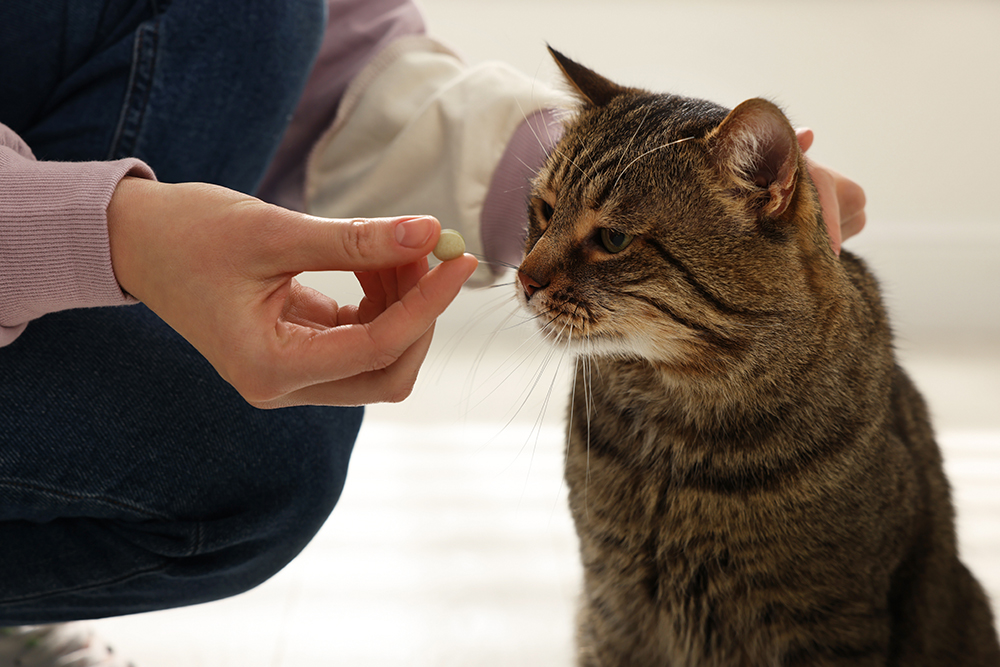
Do Indoor Cats Need Heartworm Protection?
Yes! How many times have you swatted a mosquito in your home? Mosquitoes transmit heartworms, so even indoor kitties are at risk.
A reported 25% of feline heartworm infections occur in cats that live exclusively indoors.
Do Cats Need Heartworm Protection Year-Round?
The American Heartworm Society, the Companion Animal Parasite Council (CAPC), and the U.S. Food & Drug Administration (FDA) recommend year-round heartworm prevention for cats.
Heartworms are found worldwide, but, as you might expect, given their mosquito transmission, they’re more prevalent in some geographic regions. If you live in the United States, check out the American Heartworm Society’s most recent incidence map to get an idea of the relative risk in your area.
It is important to note that heartworm surveillance data is limited by the number of cases detected and reported. No area should be considered completely “safe,” even if few cases have been documented.
Conclusion
Heartworms present differently in cats than dogs, but they’re still a serious (and sometimes deadly) threat. Veterinary experts recommend year-round heartworm prevention for all cats, regardless of where they live and whether they spend time outdoors.
You can talk to your veterinarian to develop a parasite prevention program that is right for your kitty.
Featured Image Credit: Sergey Nivens, Shutterstock

